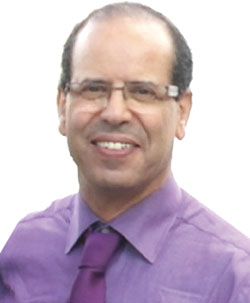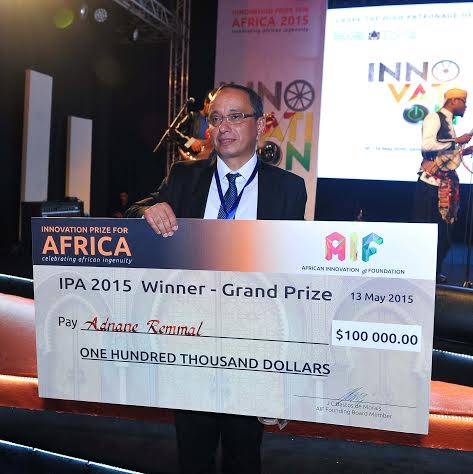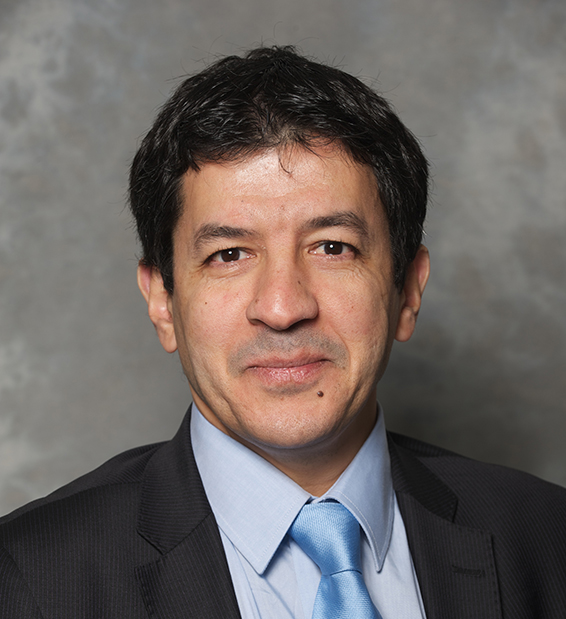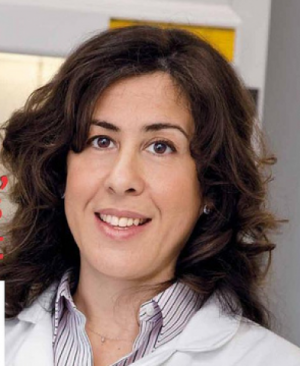Keynotes
Pr. Driss Boussaoud
Neuro-Technologies : from neurons to brain-machine interface
Abstract... +
 Driss Boussaoud, Institute of Systems Neuroscience, Marseille (France) - driss.boussaoud@univ-amu.fr
Pr. Driss Boussaoud, Cognitive Neuroscientist at the Centre National de la Recherche Scientifique (CNRS, France), Institut de Neurosciences des Systèmes, UMR 1106 Inserm and Aix-Marseille University. driss.boussaoud@univ-amu.fr
Driss Boussaoud, Institute of Systems Neuroscience, Marseille (France) - driss.boussaoud@univ-amu.fr
Pr. Driss Boussaoud, Cognitive Neuroscientist at the Centre National de la Recherche Scientifique (CNRS, France), Institut de Neurosciences des Systèmes, UMR 1106 Inserm and Aix-Marseille University. driss.boussaoud@univ-amu.fr
Currently Invited Professor at the Faculty of Medicine and Pharmacy, Univ. Sidi Mohamed Ben Abdellah (Fes, Morocco).
Driss Boussaoud was born in the Middle Atlas of Morocco, in 1958. He received his B.S with distinction in Biology & Geology in 1980 from Mohamed Vth University (Rabat, Morocco), and a PhD in Neurosciences in 1983 from Claude Bernard University (Lyon, France). After a short stay in Morocco as an Assistant Professor, he joined the National Institutes of Health in Bethesda (MD, USA), for a 6 year stay (1986-1992). In 1992, he joined the CNRS (Lyon, France) where he has developed his research program on the emergence of function in brain networks using neurophysiology, brain imaging and neuropsychology both in health and disease.
Driss Boussaoud has made significant contributions to the anatomy and physiology of visual pathways, the processing of gaze signals, attention and action interactions, and the brain dynamics during learning. His current work focuses on social learning addressing questions such as: how social context modulates our brain functioning? and how do we learn from others? He has authored and co-authored over 100 articles and book chapters and gave numerous international conferences. His work has been cited more than 4000 times, with an average citation per item of 63 times, h index of 32 (Web of Science). He also published book chapters, and.
Driss Boussaoud was promoted as CNRS Directeur de Recherche since 1999, and has created and acted as Director of the Mediterranean Institute for Cognitive Neurosciences (INCM, UMR6193, Marseille), Member of the National Advisory Committee (2004-2009), PI and Coordinator of the French-Moroccan Neuroscience Consortium (2008-2015; http://gdri-neuroscience-france-maroc.scicog.fr/), and PI and Coordinator of N€UROMED, FP7 International Cooperation, REGPOT-2009-2 (2009-2013). Since 2008, Driss Boussaoud has played an active role in the development of cooperation and exchanges among Mediterranean neuroscientists. In particular, he founded the Mediterranean Neuroscience Society – MNS http://www.mnsociety.net/, and has acted as its 1st President (2009-2012).
For details see http://ins.univ-amu.fr/research-teams/team-member/d.boussaoud.
Contact: Driss.Boussaoud@univ-amu.fr
Dr. Samir Iqbal
Clinical Applications of Nanotechnology
Abstract... +
 Dr. Samir Iqbal is an Associate Professor at the University of Texas at Arlington (UT-Arlington), USA.
His work focuses on nanotechnology applications in solid-state sensors, developing novel nano-bio interfaces, and development of cancer screening devices with high sensitivity and selectivity.
Dr. Samir Iqbal is an Associate Professor at the University of Texas at Arlington (UT-Arlington), USA.
His work focuses on nanotechnology applications in solid-state sensors, developing novel nano-bio interfaces, and development of cancer screening devices with high sensitivity and selectivity.
He is a Fellow of the Royal Socety of Chmeistry and a senior member of IEEE. He serves as a Distinguished Lecturer for IEEE-Engineering in Medicine and Biology Society (EMBS) and is on the EMBS Technical Committee on BioMEMS. He is also member of American Physical Society, American Society of Mechanical Engineers, Biomedical Engineering Society, Biophysical Society, American Society of Mechanical Engineers, European Society for Nanomedicine, and Sigma Xi, to name a few. He was a recipient of US National Science Foundation CAREER award in 2009. In 2013, UT-Arlington selected him for Honorable Mention for Best Academic Advisor Award. In 2014, the College of Engineering at UT-Arlington nominated him for President's Award for Excellence in Teaching. He was awarded Sigma Xi Outstanding Faculty Mentor Award in 2014. In November 2014, he was inducted into National Academy of Innovators by UT-Arlington. In 2015, he was given the Best Research Mentor Award. In 2016, he was awarded Research Excellence Award by his university.
Pr. Adnane Remmal
Natural promotor, an alternative to antibiotics in animal feeding. From the laboratory to the market

Pr. Adnane Adnane Remmal of Université Sidi Mohamed Ben Abdellah, Fès
with expertise in Aquaculture, Food Science, Animal Science. He is the winner of the 2015 edition of the Innovation Award for Africa.
Abderrahim LACHGAR
Invectys' telomerase DNA vaccine, a major innovation in Cancer treatment

Chief Business Officer, INVECTYS S.A.
PhD in Immuno-virology from Université Pierre & Marie Curie, Paris
MS in Science and Technology forecasting and Assessment
MS in Business Management
Over 20 years experience as senior executive in biopharmaceutical industry
Advisor and member of Strategic Baords of several European biotech companies
Member of the Board of Directors at Medicen (Paris Region global healthcare competitiveness cluster)
Zaki Sellam
Value Creation from academy to Pharma/Biotech industry, entrepreneurial perspective.
 Zaki Sellam, Founder and CEO of Avicenna Oncology GmbH (Basel, Switzerland)
"Throughout his career, Zaki has worked in scientific, executive and board functions. With more than 15 years of international experience, Zaki has supported several innovative biotech start-up from their creation & structuration to their financing & partnering activities. Meanwhile, he co-founded various Biotech ventures such as Avicenna Oncology GmbH (Antibody Drug Conjugate field, Basel, Switzerland), CarboMimetics SAS (GlycoChemistry field, Paris, France), Atfal Pharma AG (Paediatrics field, Basel, Switzerland). Zaki holds a Master of Science degree in Biotechnology Engineering (National School of Biotechnology, Bordeaux, FR), and a Master of Business Administration (Institute of Business Administration, Poitiers, FR). He is completing this year a PhD in Strategic Management within Pharma Industry (Universiry of Hertfordshire, Hatfield, UK).
Zaki Sellam, Founder and CEO of Avicenna Oncology GmbH (Basel, Switzerland)
"Throughout his career, Zaki has worked in scientific, executive and board functions. With more than 15 years of international experience, Zaki has supported several innovative biotech start-up from their creation & structuration to their financing & partnering activities. Meanwhile, he co-founded various Biotech ventures such as Avicenna Oncology GmbH (Antibody Drug Conjugate field, Basel, Switzerland), CarboMimetics SAS (GlycoChemistry field, Paris, France), Atfal Pharma AG (Paediatrics field, Basel, Switzerland). Zaki holds a Master of Science degree in Biotechnology Engineering (National School of Biotechnology, Bordeaux, FR), and a Master of Business Administration (Institute of Business Administration, Poitiers, FR). He is completing this year a PhD in Strategic Management within Pharma Industry (Universiry of Hertfordshire, Hatfield, UK).
Nabila Seddiki
Regulatory T cells in health and disease : from basic research through innovation and towards clinical investigations.
Abstract... +
 Nabila Seddiki is a Senior Lecturer at the Paris-Est Créteil University (UPEC).
She holds an INSERM “Chaire d’Excellence en Immunologie et Maladies Infectieuses”. She joined the Vaccine Research Institute (VRI/UPEC) end of 2010. Before that she was a Research Fellow at the Centenary Institute (University of Sydney) and then a Senior Scientist at the National Centre for HIV Epidemiology and Clinical Research (University of New South Wales).
Nabila Seddiki is a Senior Lecturer at the Paris-Est Créteil University (UPEC).
She holds an INSERM “Chaire d’Excellence en Immunologie et Maladies Infectieuses”. She joined the Vaccine Research Institute (VRI/UPEC) end of 2010. Before that she was a Research Fellow at the Centenary Institute (University of Sydney) and then a Senior Scientist at the National Centre for HIV Epidemiology and Clinical Research (University of New South Wales).
Dr Seddiki's research interests focus on the cellular and molecular characterisation of T-cell subsets. She is particularly interested in investigating the dynamics of antigen-specific T regulatory, T follicular helper and effector CD4+ T-cell subsets in viral infections. The highlight of her career so far is the discovery of a new means of accurately identifying human natural Tregs by using expression of cell surface CD25 (IL-2R-α) and CD127 (IL-7R-α). This work has been patented, licensed and is currently commercialized for research and clinical use worldwide. More recently, her work led to the identification and isolation of antigen-specific Tregs. Lately, Dr Seddiki has been investigating the role of microRNA and chromatin remodeling in the regulation of target molecules during HIV-1 infection. All these studies aim at understanding HIV pathogenesis and deciphering the mechanisms that lead to CD4+ T cell depletion during infection.
